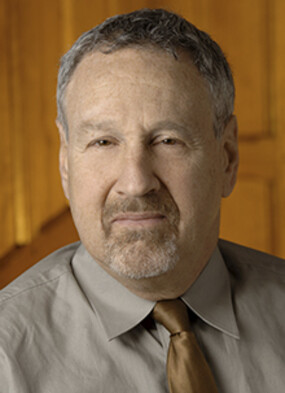Peter H. Schuck is the Simeon E. Baldwin Professor of Law Emeritus at Yale University. He has held this chair since 1984, served briefly as Deputy Dean of the Law School, and took emeritus status in 2009. His major fields of teaching and research are law and public policy; tort law; immigration, citizenship, and refugee law; groups, diversity, and law; and administrative law.
He has written on a broad range of other public policy topics. His most recent books include Why Government Fails So Often, and How It Can Do Better (2014); and Understanding America: The Institutions and Policies that Shape America and the World (Public Affairs, 2008) (co-edited with James Q. Wilson). Earlier books include Targeting in Social Programs: Avoiding Bad Bets, Removing Bad Apples (Brookings Institution Press, 2006) (with Richard J. Zeckhauser); Meditations of a Militant Moderate: Cool Views on Hot Issues (2006); Immigration Stories (co-editor, 2005); Foundations of Administrative Law (editor, 2d ed., 2004); Diversity in America: Keeping Government at a Safe Distance (Harvard/Belknap, 2003); The Limits of Law: Essays on Democratic Governance (2000); Citizens, Strangers, and In-Betweens: Essays on Immigration and Citizenship (1998); Paths to Inclusion: The Integration of Migrants in the United States and Germany (co-editor, 1998); Suing Government: Citizen Remedies for Official Wrongs (1983); Citizenship Without Consent: Illegal Aliens in the American Policy (with Rogers M. Smith, 1985); Agent Orange on Trial: Mass Toxic Disasters in the Courts (1987); Tort Law and the Public Interest: Competition, Innovation, and Consumer Welfare (editor, 1991); and The Judiciary Committees (1974). His other writing consists of more than 200 articles that have appeared in a wide variety of scholarly, professional, and popular journals. He is a contributing editor to The American Lawyer, has served as an arbitrator, expert witness, and consultant in a variety of disputes, and has testified in dozens of congressional hearings. He was elected to the American Academy of Arts and Sciences in 2015. Earlier, he was awarded a Harvard Graduate Prize Fellowship (1968-70), a Guggenheim Fellowship (1984-85), a residency at Rockefeller Foundation center in Bellagio (2001), and a Fulbright Senior Fellowship to lecture in India (2004). His current major project is a forthcoming book, Five Hard Issues, and How to Think About Them (forthcoming 2017, Princeton U. Press. He regularly teaches spring semesters at Berkeley Law School.
Prior to joining the Yale faculty in 1979, he was Principal Deputy Assistant Secretary for Planning and Evaluation in the U.S. Department of Health, Education, and Welfare (1977-79), Director of the Washington Office of Consumers Union (1972-77), and consultant to the Center for Study of Responsive Law (1971-72). He also practiced law in New York City (1965-68) and holds degrees from Cornell (B.A. 1962), Harvard Law School (J.D. 1965), N.Y.U. Law School (LL.M. in International Law 1966), and Harvard University (M.A. in Government 1969). He lives in New York City where he has an office and teaches periodically at NYU Law School. He and his wife Marcy have two grown children and two grandchildren.
